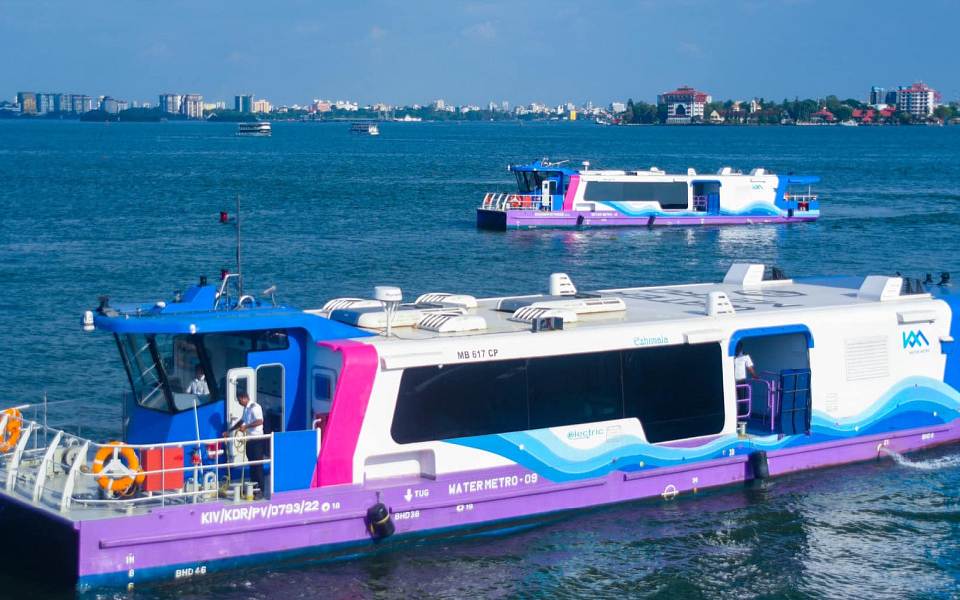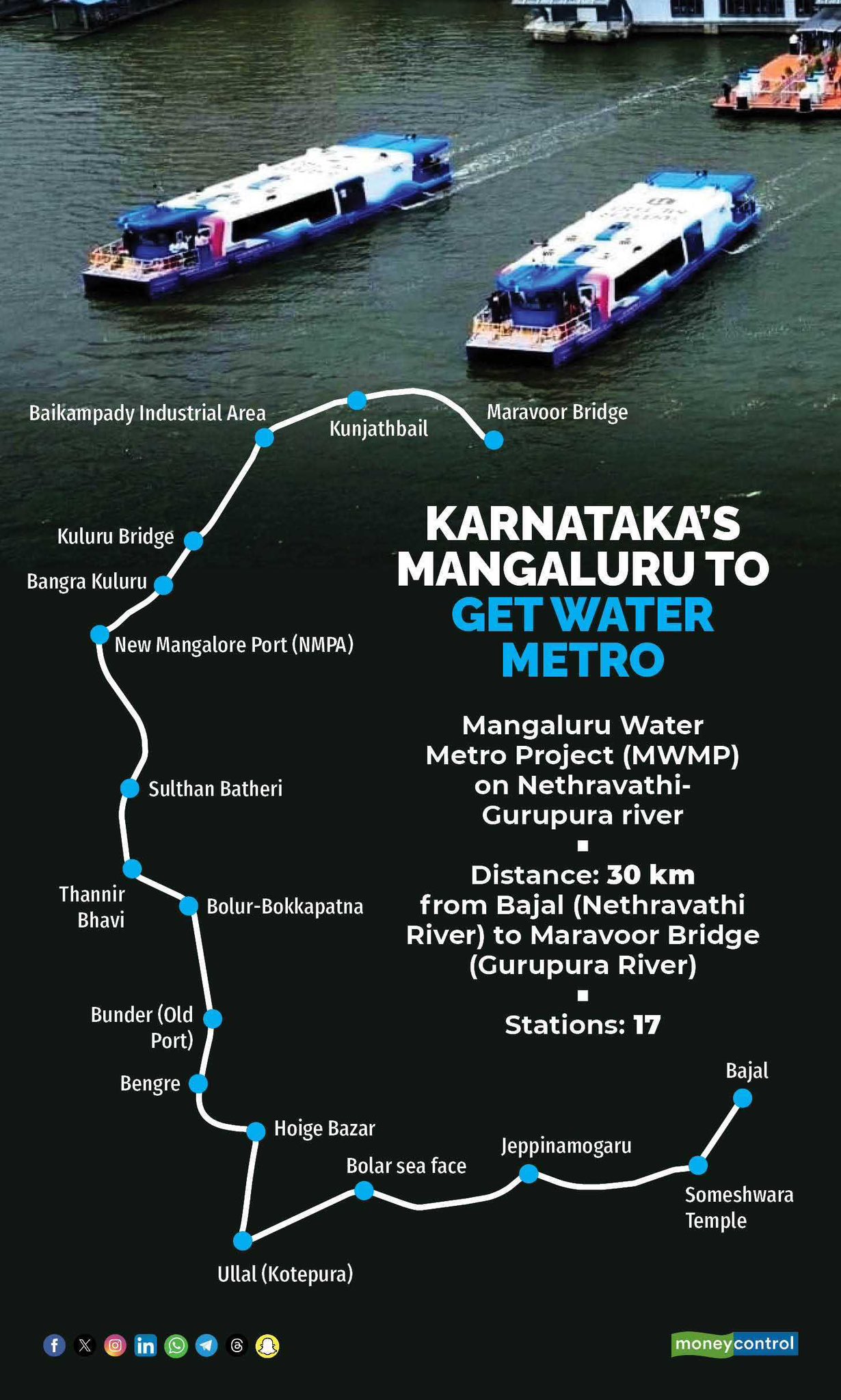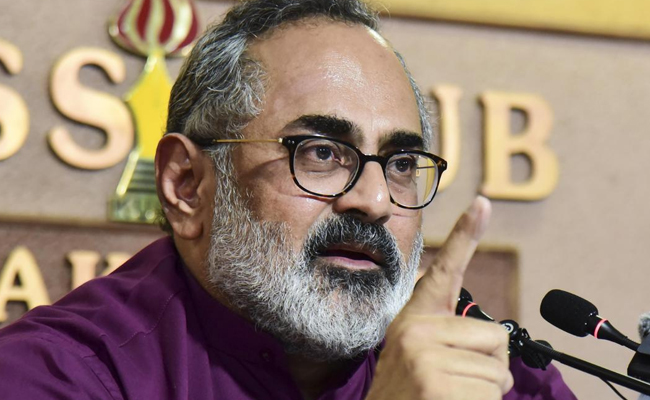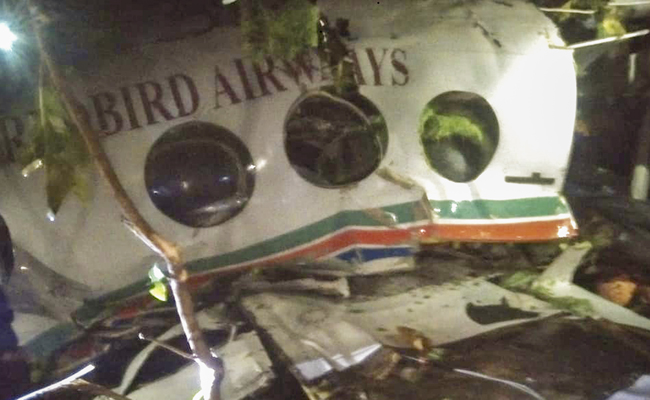Mangaluru (Karnataka), Nov 4: After being endowed with multi connectivity facilities like three national highways, port and airport, Mangaluru city is now looking at a significant move towards sustainable urban mobility as the Karnataka Maritime Board (KMB) has announced plans for the Mangaluru Water Metro Project (MWMP), officials said on Monday.
This ambitious initiative aims to transform public transportation in the state, utilising National Waterways to connect areas along the Nethravathi (NW-74) and Gurupura (NW-43) rivers, they said.
Set to become India's second-largest water transport system after Kochi, the project promises an eco-friendly, economical and efficient mode of travel, the officials said.
According to officials, the MWMP will connect isolated communities from Bajal to Maravoor, enhancing accessibility and promoting the holistic development of these regions. The initiative is expected to boost local livelihoods and improve the standard of living through integrated transport networks.
According to the project report available with PTI, the MWMP will be rolled out in phases, with the initial stretch covering 30 kilometres along the Nethravathi and Gurupura river backwaters.
The priority route, beginning at Bajal on the Nethravathi and extending to the Maravoor Bridge on the Gurupura, will feature around 17 modern Metro stations.
Key locations such as Someshwara Temple, Ullal and the New Mangalore Port are included in the proposed route. State-of-the-art electric and diesel catamaran boats will be deployed, equipped with essential amenities to ensure a high standard of comfort and operational efficiency.
A comprehensive Feasibility Report (FR) will assess the project's viability, presenting a detailed cost-benefit analysis, market potential, operational strategies and environmental considerations.
"The report will objectively evaluate the project's merits and challenges, providing crucial information for decision-makers, stakeholders and investors," they said.
Officials in the port and fisheries subdivision told PTI that key areas of analysis has been based on assessing the potential to decongest old port areas, exploring the feasibility of cargo movement using Roll-on/Roll-off (Ro-Ro) water metros, examining water level variations influenced by tidal flows, integration with feeder services to ensure seamless last-mile connectivity, demand forecasts over a 25-year period, based on extensive socio-economic research of usage and utility of the MWMP.
The project's Terms of Reference (ToR) emphasise sustainable development, involving thorough site identification, user demand assessments and environmental impact studies. Comprehensive surveys such as LIDAR mapping, bathymetric studies and topographical analysis will ensure accurate planning and implementation, the officials told.
Furthermore, technical collaborations with national institutes of repute will support studies on wave tranquillity, vessel height clearance and infrastructure recommendations for jetties and repair facilities, they said.
A detailed environmental monitoring programme will assess air and water quality, noise levels and aquatic biodiversity in line with Ministry of Environment, Forest, and Climate Change (MOEF&CC) guidelines, the officials added.
The officials of the Maritime Board said the MWMP promises significant economic and environmental benefits, from easing traffic congestion to reducing air pollution. The project will also explore non-fare revenue streams and develop models to ensure financial sustainability.
A socio-economic impact assessment will measure the project's contribution to regional development, backed by projected revenue from passenger fares and ancillary services, a senior official said.
The Board also aims at championing cleaner and greener transportation and to set a precedent for sustainable urban mobility, positioning Mangaluru as a progressive city that leverages its waterways, he added.
Let the Truth be known. If you read VB and like VB, please be a VB Supporter and Help us deliver the Truth to one and all.
Judge cites denial of home to Muslim girl, opposition to Dalit women cooking mid-day meals
Hyderabad, February 23, 2026: Supreme Court judge Justice Ujjal Bhuyan has said that despite repeated affirmations of constitutional morality by courts, deep societal faultlines rooted in caste and religious discrimination continue to shape everyday realities in India.
Speaking at a seminar on “Constitutional Morality and the Role of District Judiciary” organised by the Telangana Judges Association and the Telangana State Judicial Academy in Hyderabad, Justice Bhuyan reflected on the gap between constitutional ideals and social practices.
He cited a recent instance involving his daughter’s friend, a PhD scholar at a private university in Noida, who was denied accommodation in South Delhi after her surname revealed her Muslim identity. According to Justice Bhuyan, the landlady bluntly informed her that no accommodation was available once her religious background became known.
In another example from Odisha, he referred to resistance by some parents to the government’s mid-day meal programme because the food was prepared by Dalit women employed as cooks. He noted that some parents had objected aggressively and refused to allow their children to consume meals cooked by members of the Scheduled Caste community.
Describing these incidents as “the tip of the iceberg,” Justice Bhuyan said they reveal how far society remains from the benchmark of constitutional morality even 75 years into the Republic. He observed that while the Constitution lays down standards of equality and dignity, the morality practised within homes and communities often diverges sharply from those values.
He emphasised that constitutional morality requires governance through the rule of law rather than the rule of popular opinion. Referring to the evolution of the doctrine through judicial decisions, he cited Naz Foundation v Union of India, in which the Delhi High Court read down Section 377 of the Indian Penal Code, holding that popular morality cannot restrict fundamental rights under Article 21. Though the judgment was later overturned in Suresh Kumar Koushal v Naz Foundation, the Supreme Court ultimately restored and expanded the principle in Navtej Singh Johar v Union of India, affirming that constitutional morality must prevail over majoritarian views.
“In our constitutional scheme, it is the constitutionality of the issue before the court that is relevant, not the dominant or popular view,” he said.
Justice Bhuyan also addressed the functioning of the district judiciary, underlining that trial courts are the first point of contact for most litigants and form the foundation of the justice delivery system. He stressed that due importance must be given to the recording of evidence and adjudication of bail matters.
Highlighting the role of High Courts, he said their supervisory jurisdiction under Article 227 of the Constitution is intended as a shield to correct grave jurisdictional errors, not as a mechanism to substitute the discretion or factual appreciation of trial judges.
He recalled that several distinguished judges, including Justice H R Khanna, Justice A M Ahmadi, and Justice Fathima Beevi, began their careers in the district judiciary.
On representation within the judicial system, Justice Bhuyan noted that Telangana has made significant strides in gender inclusion. Out of a sanctioned strength of 655 judicial officers in the Telangana Judicial Service, 478 are currently serving, of whom 283 are women, exceeding 50 per cent representation. He added that members of Scheduled Castes, Scheduled Tribes, minority communities, and persons with disabilities are also represented in the state’s judiciary.
He observed that greater representation of women, marginalised communities, persons with disabilities, and sexual minorities would help make the judiciary more inclusive and reflective of India’s diversity. “The judiciary must represent all the colours of the rainbow and become a rainbow institution,” he said.
Justice Bhuyan also referred to the recent restoration by the Supreme Court of the requirement of a minimum three years of practice at the Bar for entry-level judicial posts. While acknowledging that the requirement ensures practical exposure, he cautioned that its impact on women aspirants, especially those from rural or small-town backgrounds facing social and financial constraints, would need to be carefully observed over time.
Concluding his address, he reiterated that the justice system must strive to bridge the gap between constitutional ideals and lived realities, ensuring that the rule of law remains paramount.





